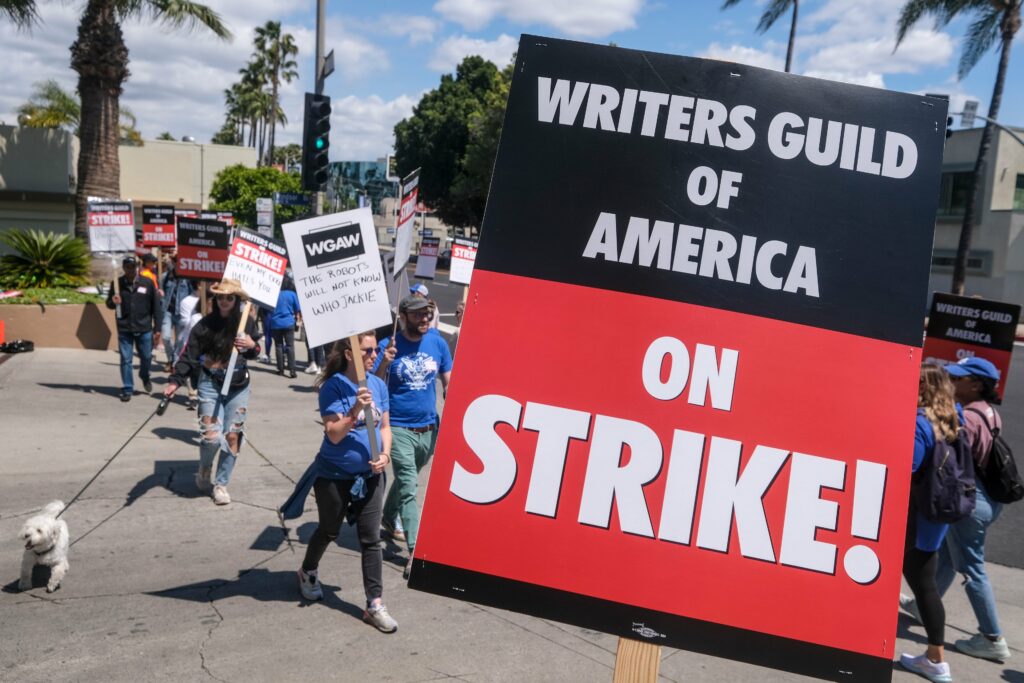
“The ability of screen writers to make a living is being threatened,” Alex Levine, president of the Writers Guild of Canada, told CTV National News on June 17, about one month after the Writers’ Guild of America walked off the job. “They hire our crews, they use our locations, and that work is stopping.”
In the same story, John Lewis, VP of IATSE and director of Canadian affairs, told CTV, “The worst hit has been British Columbia, so much of foreign-service U.S.-based production gets done in British Columbia so they have been impacted. At this time, we would have anywhere between 30 and 40 productions shooting that are U.S.-based, in July we will have none that are going to camera in British Columbia.”
And then the other shoe the industry was waiting for dropped. Following failed talks with the AMPTP, SAG-AFTRA announced their intention to strike at a press conference on July 13 with SAG-AFTRA President Fran Drescher delivering a fiery speech that connected the actors’ strike with issues affecting all workers. “What’s happening to us is happening across all fields of labour,” she said. “This is a serious thing that affects hundreds of thousands, if not millions, of people around the world… But we are the victims here… I am shocked by the way the people we work with are treating us… But our unions around the world are standing with us…because at some point the jig is up…this is a very big deal, and it weighs heavy on us… but we made the hard decision.”
At the centre of both the WGA and SAG-AFTRA strikes are two intractable issues:
• Streaming has disrupted the means of accounting for residuals. Streamers technically make money from subscribers, not from the shows they run or how many times they run them. The business model is completely different and both actors and writers want the way in which they are paid to reflect that.
• The ownership of an actor’s likeness if it is reproduced by artificial intelligence is on the table. The producers’ guild is saying they will pay only once for use of the actor’s image, and then the producers own that image.
The impact of the strike will know no borders, and the Canadian industry will be affected. Many are saying that while phones may not be ringing now, with visionary leadership, the Canadian industry might look to become less reliant on American productions, invest in Canadian content, and develop a worker-focused way to share the wealth generated in the film and television industry.
Film and television production in Canada contributed $13.73 billion with 240,760 jobs across Canada.
– By CSC Staff
